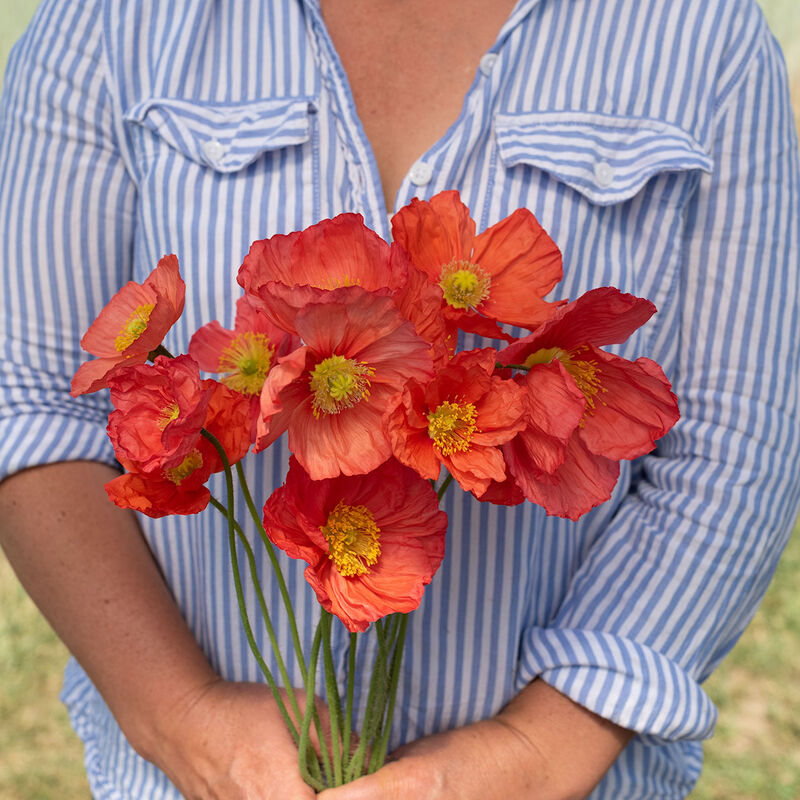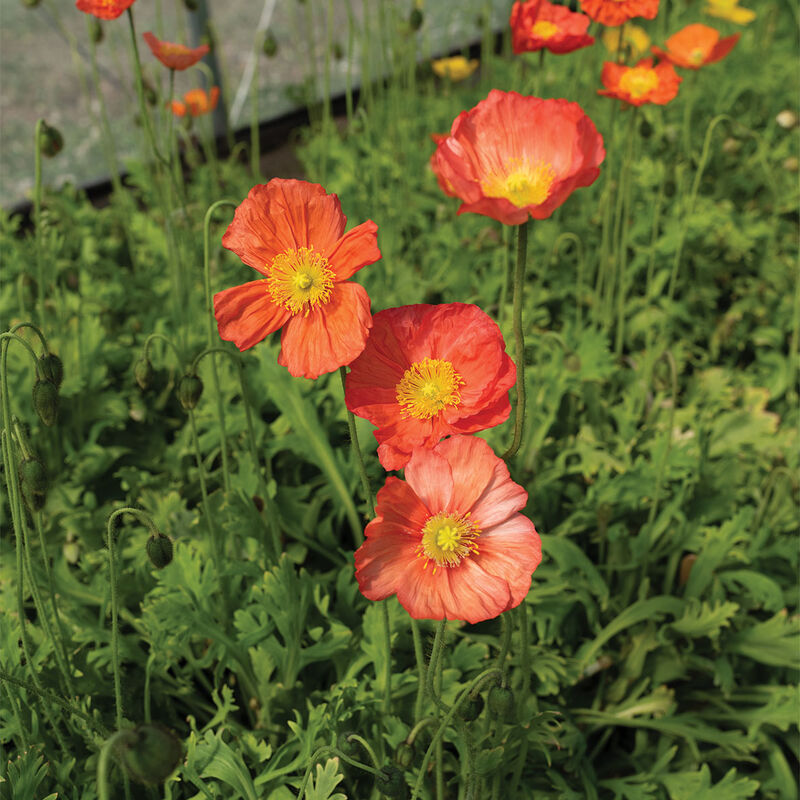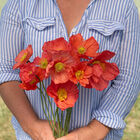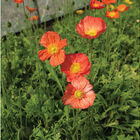Champagne Bubbles Pink (F1) Iceland Poppy Seed
Product ID:4705.114705
Champagne Bubbles Pink (F1) Iceland Poppy Seed
Product ID:4705.114705
Abundant crepe-paper-like blooms.
Watermelon-colored 3–5" blooms are borne on sturdy, straight, 12–20" stems. Productive plants produce uniform, crinkled, cup-shaped blooms that sparkle and float above clumps of soft, gray-green foliage. Lightly fragrant.Specs:
- This product does not ship to the following countries: United Arab Emirates, Austria, Australia, Barbados, Belgium, Bulgaria, Bermuda, Bahamas, Switzerland, Cyprus, Czech Republic, Germany, Denmark, Estonia, Spain, Finland, France, United Kingdom, Greece, Hong Kong, Croatia, Hungary, Ireland, Iceland, Italy, Japan, Republic of Korea, Kuwait, Cayman Islands, Lithuania, Luxembourg, Latvia, Malta, Netherlands, Norway, New Zealand, Oman, Poland, Portugal, Qatar, Romania, Saudi Arabia, Sweden, Singapore, Slovenia, Slovakia, San Marino, Thailand, Trinidad and Tobago, Taiwan, Ukraine.
DAYS TO GERMINATION:
7-12 days at 65-75°F (18-24°C)SOWING:
Transplant - Sow into 128-cell or other small cell tray 6-8 weeks before transplanting. Cover seeds very lightly. Bottom water or mist to avoid displacing seeds and soil. Harden off and transplant outdoors, or transplant directly into a covered structure. Direct seed - Sow in early spring, fall, or winter. Iceland poppies grow best in cooler conditions – below 70°F. Bloom production and quality declines as temperatures rise. Surface-sow and keep soil evenly moist until seedlings emerge. Pinching plants is not necessary or beneficial.LIGHT PREFERENCE:
Sun/Part Shade.PLANT HEIGHT:
15-20".PLANT SPACING:
6-12".HARDINESS ZONES:
Zones 4-9. Blooms late spring until summer in northern climates and early spring until early summer in warmer climates when grown outdoors. Prefers cool summers and will readily self-sow. May be annual or perennial depending on growing conditions.VASE LIFE:
5-7 days.HARVEST:
As the buds just begin to open and show a bit of color but before they fully expand. Place in clear water.SOIL REQUIREMENTS:
Moist, well-drained soil.USES:
Cut flower. Beds, borders, mass plantings, and containers.SCIENTIFIC NAME:
Papaver nudicauleJohnny's is committed to your success, every step of the way.
We want you, our customer, to be 100% satisfied with all of our seeds, tools, and supplies.
If anything you purchase from us proves unsatisfactory, we will either replace the item or refund the purchase price.









